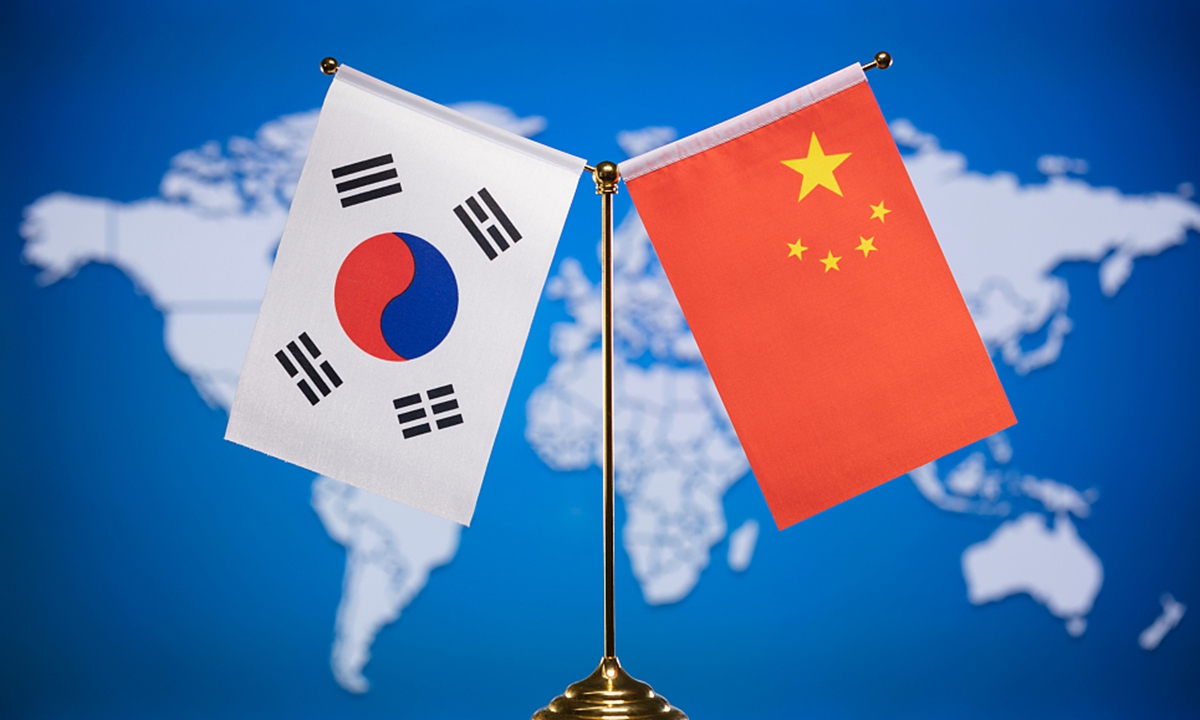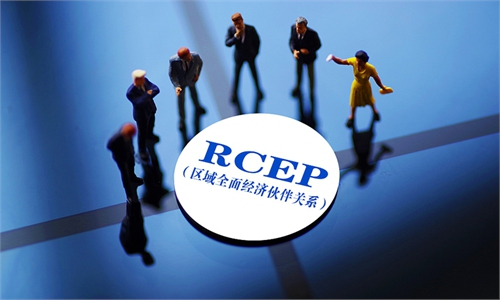
Photo: VCG
The result of South Korea's presidential election is expected to be announced late Wednesday or early Thursday. The election has two features. First, the race between the candidates is tight. The country's media calls it the most unpredictable election in South Korean history. Second, the election campaign has been unprecedentedly focusing on China-related topics. The candidates used to talk more about North Korea, but now they have been racing to show some toughness on China. Who will finally win? Will the new president change the country's current foreign policy? These questions concern both China and South Korea's public opinions and have caused some discussions and worries.Chinese State Councilor and Foreign Minister Wang Yi cited a South Korean proverb in his response to a South Korean journalist during a press conference on Monday. Wang said, "While a house could be bought with three coppers, a good neighbor is worth 1,000 pieces of gold." This shows China's sincerity and kindness to cherishing China-South Korea relations.
Wang noted that past events have proven that China and South Korea are "not adversaries, but partners with converging interests, a lot to offer each other and much untapped cooperation potential." This will not change after the presidential Blue House has a new leader. No matter who wins in the election, China-South Korea relations should progress ahead rather than roll back.
This year marks the 30th anniversary of the establishment of diplomatic ties between China and South Korea. The two countries' trade surpassed $300 billion in 2020, or about 60 times greater than 30 years ago. This is the total amount of that between South Korea and the US, Japan and the EU. The two countries' people-to-people exchanges have reached the peak of 10 million per year before the COVID-19 pandemic. China is South Korea's largest trading partner, export market, import source and source of overseas students. All these are the concrete fruits of the two countries' mutually beneficial cooperation, which lays a solid foundation for their relations. It also proves the strong endogenous power of the development of China-South Korea ties.
China and South Korea are friendly neighbors that cannot be moved away. It is not a bad thing that South Korean society is willing to talk about China. The key lies in whether they can more objectively and comprehensively perceive China through the debates of various voices. After the election, how South Korean society will return to be rational about the relations with China will be an important subject.
For South Korea, the greatest security concern is peace and stability on the Korean Peninsula. This is completely consistent with China's position of never allowing war and chaos to arise there. Relations between Beijing and Seoul deteriorated due to the THAAD issue. But through joint efforts, China and South Korea have reached some consensus on dealing with the issue in the current stage, which has allowed bilateral relations to return to normal. This is a classic case of the two countries overcoming external interference. Such experiences prove that maintaining a stable relationship with China is an important prerequisite for South Korea to achieve national security.
In recent years, Chinese and South Korean societies have seen some controversies over food and clothes. These problems were not very big; yet, public opinion in both countries have said something that hurt the feelings of people from the other side. Honestly, this is not worth it. The controversies are more like a bubble out of pique of people from both countries. They are rooted in the common historical and cultural origins that China and South Korea share. And after getting rid of all the emotional expressions, these roots can be used as a medium to close the psychological distance between the two countries. A pragmatic and rational attitude and a more open mind are the keys to resolving the conflict between Chinese and South Korean people.
Washington is working on Seoul, either through pressure or luring it with the promise of interests. It aims to turn the latter into a frontline of geopolitical confrontation in Northeast Asia. This is not in the interest of South Korea. The new South Korean president needs to solve the problem of how to balance relations with China and the US and continue to act as a bridge instead of "taking sides." This also tests the president's political wisdom and strategic determination. It should be emphasized that there is no simple "pro-US" or "pro-China" division. South Korea is in a complex, sensitive, and risky geopolitical location. It needs to stand higher so that its vision won't "be blocked by floating clouds."
As an old Chinese saying goes, a man is steadfast at the age of 30. Thirty years should mark maturity and stability. The relationship between China and South Korea should have crossed the stage of ups and downs. No matter who wins the election, we sincerely congratulate them and look forward to the next level of China-South Korea relations.


